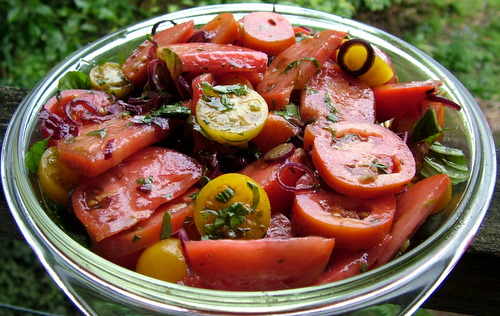Last year I posted about sour dough bread - which I'm convinced is healthier for us - and the link between depression and unsustainable agriculture. This post connects a few more ideas.
This article is an interesting one, the lower rates of allergy in Amish communities. Some aspects of diet, environment or lifestyle have been helpful: Amish farm kids remarkably immune to allergies, study finds
It describes the connection between gut health and mental health - particularly autism and the now common disorders of the brain including ADD and dyspraxia:
Gut and Psychology Syndrome (GAP syndrome or GAPS)We've all heard people asking 'is ADD a real problem?' and people who work with kids responding 'oh yeah!' ... 'if so and so doesn't take their medication he'd be climbing the walls'. My feeling is it might be worth re-framing the 'disorder' into a collection of symptoms. In other words - these kids have a lot of trouble concentrating and have a collection of symptoms which vary from child to child and which are improved by medicating them. The 'medicine' shows us that symptoms can be improved, but it doesn't tell us much about the heart of the problem.
For me, it seems obvious that the rates have gone up dramatically when compared to older generations and that therefore there must be an environmental variable, or several, that have changed dramatically.
The microbes that we live with are one possible explanation:
Sadly, I don't think that we understand perfectly the connection between microbes and our own health. We know that intestinal flora provide us with significant assistance in digesting and properly absorbing nutrients from our food... this includes manufacturing B vitamins. Yet biodiversity of microbes also seems to play a role. Even the pH or acidity/alkalinity of your gut likely influences which bacteria will live there - this makes sugar and refined carbohydrates highly suspect!
My personal choice is to play it safe and avoid chemicals and 'new' foods as much as is practical. At home we eat foods that our grandparents might have eaten. Perhaps this includes too much sugar! This link shows you the major foods included in the diet of my American Indian ancestors including Jerusalum artichokes which are known to be helpful for intestinal flora. Happily I'm growing some in the garden and very much looking forward to harvesting them soon.
We don't use commercial cleaners with antibiotics or strong chemicals. We don't regularly eat or drink out of plastic, nor do we cook much in our microwave. The best way to summarise our philosophy is that we try to live the way our grandparents did, plus some technology.
Our environment is worth protecting - both in terms of its intrinsic worth and because we might need something from it later!







